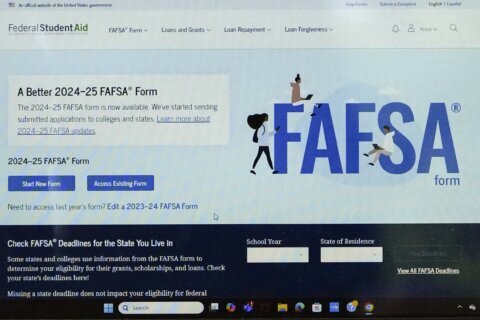JACKSON, Miss. (AP) — The Mississippi Supreme Court has declined to rule on whether the state is violating its own constitution with a program that would spend $10 million of public money on infrastructure grants for private schools.
The justices on Thursday ruled 7-2 that an advocacy group lacked legal standing to sue the state. Parents for Public Schools “failed to sufficiently demonstrate an adverse impact that it suffers differently from the general public,” the majority wrote.
Because of that finding, justices said they would not rule on the larger constitutional question about public money going to private schools.
In a dissent, Justice Leslie King wrote that Parents for Public Schools has proper legal standing because it represents parents of public school students. King also echoed the group’s main argument — that the Mississippi Constitution “forbids funds to be appropriated to schools that are not free.”
The Republican-controlled Mississippi Legislature voted to create the $10 million grant program in 2022, using part of the federal money that the state received for pandemic relief.
The grants were put on hold after the American Civil Liberties Union of Mississippi, the Mississippi Center for Justice and Democracy Forward sued the state in June 2022 on behalf of Parents for Public Schools.
The grants were to be funded with part of the money that Mississippi received from the federal government for COVID-19 pandemic relief, and private schools each could receive up to $100,000 for broadband, water or drainage projects.
Hinds County Chancery Judge Crystal Wise Martin blocked the law in October 2022 after Parents for Public Schools argued the grants would give private schools a competitive advantage over public schools.
Public schools could not apply for the infrastructure grants, under the 2022 law passed by the Republican-controlled Legislature and signed by Republican Gov. Tate Reeves.
Legislators created a separate program to provide interest-free loans to public schools to improve buildings and other facilities, with money coming from the state. Those loans must be repaid within 10 years. The grants to private schools would not need to be repaid.
Three Supreme Court justices heard arguments over the private school grants in February, and all nine participated in the ruling.
Copyright © 2024 The Associated Press. All rights reserved. This material may not be published, broadcast, written or redistributed.







